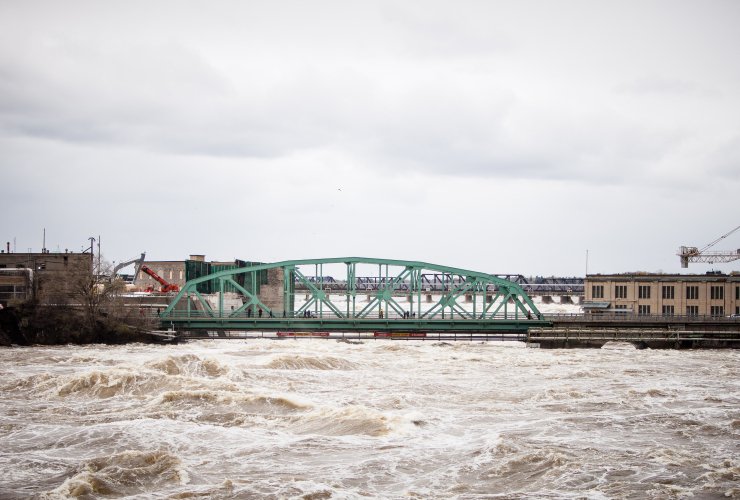Last week marked the thirtieth anniversary of the catastrophic Exxon Valdez oil spill. As director of the largest, local conservation group in Alaska back then, my life was immediately overtaken by trying to compel response to the spill, manage clean-up of oiled marine life, and search for long term policy fixes.
Typically, this anniversary is a time when I reflect on how far we’ve come and how far we have yet to go to protect the safety of our seas and mariners, especially in northern waters.
But, instead I was transfixed by a narrowly averted disaster as the disabled Viking Sky cruise ship rolled in heavy seas off the coast of Norway. With over 1,300 passengers and crew at risk, a dramatic rescue was launched, lifting close to five hundred passengers one-by-one from the foundering ship to a helicopter battling strong winds. Nine crew members of a nearby cargo ship also had to be plucked from the sea when they were forced to abandon ship in the extreme conditions.
Fotunately, Viking Sky was able to set anchor just as it came within meters of running aground on a shallow reef with over 90,000 gallons of heavy fuel oil (HFO) and close to 133,000 gallons of diesel on board.
At the same time last week, the Canadian Coast Guard had to dispatch two icebreakers to assist a tanker loaded with 8,000 tons of oil products. The tanker had lost its steering after its rudder was damaged by heavy ice in Cabot Strait off the southwest coast of Newfoundland and Labrador.
In both cases passengers and the marine environment got lucky. Response equipment was in the area. No one killed, no fuel spilled.
But with Arctic ship traffic on the increase, we can’t afford to rely on luck.
We need to remove risks — starting with the number one threat posed by ships to Arctic resources, a spill of heavy fuel oil.
Cheap, but dirty, heavy fuel oil is virtually impossible to clean up and highly persistent if spilled in northern waters. A spill in the wrong place at the wrong time has the potential to do irreparable, long-term damage to Arctic fish, wildlife, and communities where there is no realistic capacity to respond to spills. Heavy fuel oil emits black soot when burned, compounding climate change by accelerating melting of nearby ice and snow. Due to its high risk in remote, cold waters, heavy fuel oil is already banned in Antarctic waters.
Fortunately, an international effort is underway to ban this dangerous fuel in the Arctic. The matter is progressing through the International Maritime Organization (IMO) which sets international shipping law.
Prime Minister Trudeau and President Obama were early leaders in the much-needed charge to remove the threat of heavy fuel oil in the Arctic. But, in recent negotiations, Minister Garneau's Transport Canada has dragged the process down, raising questionable economic arguments, despite strong support from Arctic Canadian Indigenous organizations and leaders.
Addressing the IMO, renowned Canadian human rights advocate and former chair of the Inuit Circumpolar Conference Sheila Watt-Cloutier advised, “The language of economics and technology is always calling for more delays … I understand this same lame excuse, which is a very outdated card to play at this stage with our climate crisis — I would say do not play this card when it comes to banning Heavy Fuel Oil, which has potential to create extreme irreparable damage to our Arctic oceans… the Oceans are the life force and source of life for us as Inuit of the Arctic.”

The near misses averted this week would play out very differently in the remote Arctic. Norwegian Prime Minister Erna Solberg admitted, "It's absolutely correct that in the Far North, we would have been faced with much bigger challenges... We don't have the capacity right now to handle this kind of situation.” And, respected Nunavut elder Tagak Curley concisely noted, "Nunavut is far worse prepared than other Arctic regions.”
Thirty years later, oil from the Exxon Valdez is still buried in the beaches of Prince William Sound. There has never been a herring fishery since the spill. Orca populations and other wildlife species have not fully recovered.
Our northern resources and communities deserve better. Canada needs to step back into its leadership role and call for a ban of heavy fuel oil in the Arctic.
Before we run out of luck.
Sue Libenson is Senior Arctic Program Officer for Pacific Environment which has consultative status at the International Maritime Organization where she works to protect northern waters. She was Executive Director of the Alaska Center for the Environment during the Exxon Valdez oil spill.
Thank you for this
Thank you for this informative and timely article, just when the oilpatch isvtrying to kill legislation to protect our waters.



Comments